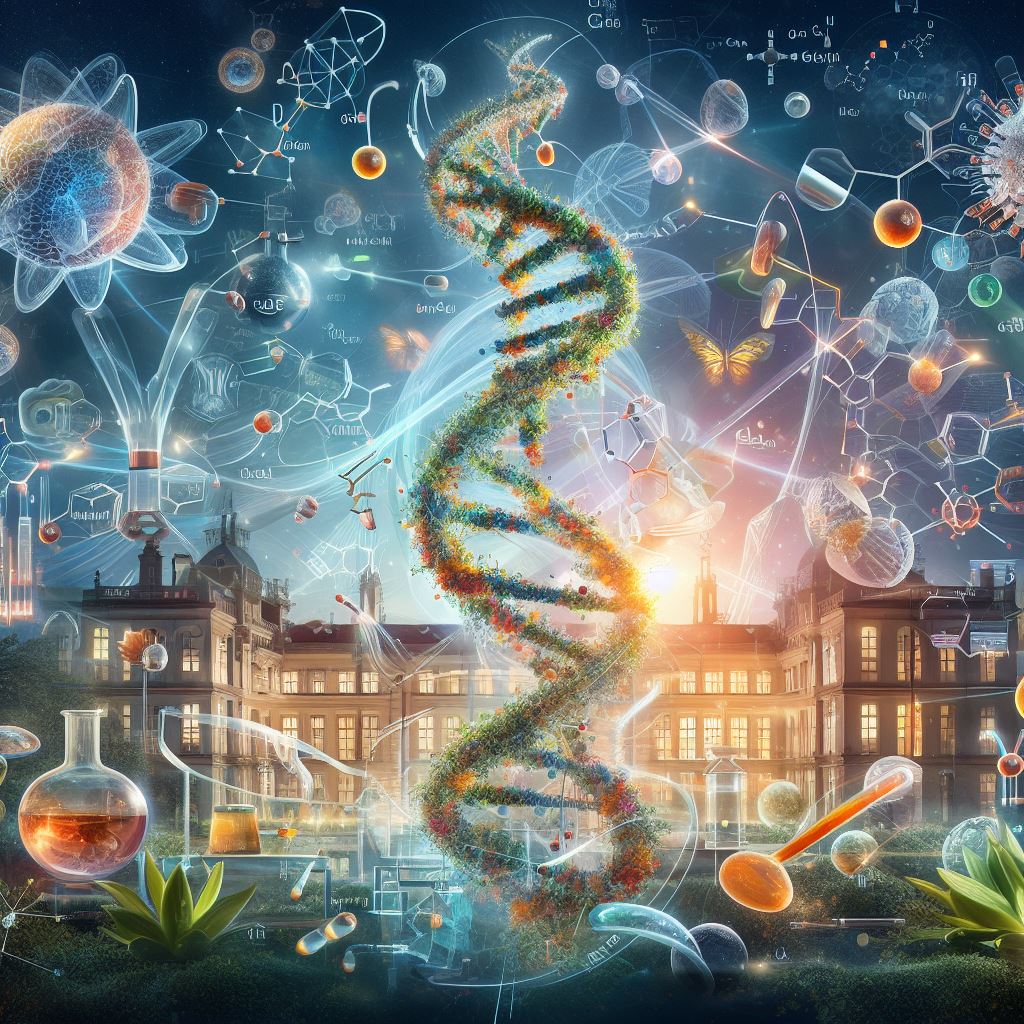
Unlocking Life's Secrets: The Purpose of Biochemistry
Biochemistry, often heralded as the bridge between biology and chemistry, plays a pivotal role in deciphering the intricate molecular dances that underpin life. As our understanding of this field deepens, so does our ability to harness its potential in various sectors, from medicine to agriculture. This article aims to illuminate the purpose and scope of biochemistry, shedding light on its historical evolution, major branches, and transformative applications.
What is Biochemistry?
Biochemistry can be succinctly defined as the study of the chemical processes and substances occurring within living organisms. It provides us a window into understanding the molecular mechanisms that drive cellular activities, ensuring the seamless operation of life's myriad processes.
A Glimpse into the History
Delving into the historical background of biochemistry, it is clear that this field has been pivotal in shaping our understanding of life at a molecular level:
-
Late 19th Century: Biochemistry took its baby steps with studies into fermentation and enzyme action.
-
Early 20th Century: With the discovery of DNA, biochemistry started deciphering the code of life, leading to the revelation of the molecular basis of genetic inheritance.
-
Mid to Late 20th Century: Advancements in molecular biology and genetics became intertwined with biochemistry, providing a more detailed picture of cellular processes and disease mechanisms.
Main Branches and Areas of Study
Biochemistry is a vast realm, encapsulating various branches, including:
-
Enzymology: Focuses on enzymes, their structure, function, and mechanism of action.
-
Molecular Genetics: Involves studying the molecular basis of genes and their regulation.
-
Metabolic Biochemistry: Concentrates on the chemical reactions and pathways, such as glycolysis and the Krebs cycle, central to cell metabolism.
-
Structural Biochemistry: Concerned with the molecular structures of biological molecules, elucidating the architecture of proteins, nucleic acids, carbohydrates, and lipids.
Biochemistry's Role in Medicine
"The secret of the care of the patient is in caring for the patient." - Dr. Francis Weld Peabody
Dr. Peabody's quote captures the essence of the role of biochemistry in medicine. By understanding disease at a molecular level, biochemistry offers insights into:
-
Disease Mechanisms: From Alzheimer's to cancer, biochemistry elucidates the molecular errors behind ailments, paving the way for targeted interventions.
-
Drug Design: Knowledge of enzymes and metabolic pathways enables the design of more effective and targeted drugs.
-
Diagnostics: Biomarkers, derived from biochemical understanding, offer accurate and early diagnosis of myriad conditions.
Applications Beyond Medicine
Agriculture
The importance of biochemistry in agriculture is profound. It aids in:
-
Crop Improvement: Knowledge of plant metabolic pathways can help improve crop yield and resistance.
-
Pest Control: By understanding the biochemistry of pests, we can design targeted pesticides that are environmentally friendly.
Environmental Science
Biochemistry helps in understanding the biochemical processes responsible for environmental phenomena, enabling effective:
-
Pollution Control: Deciphering microbial metabolic pathways can help in bioremediation efforts.
-
Ecosystem Management: Understanding the biochemistry of various species aids in ecosystem conservation.
Evolutionary Perspective
From an evolutionary perspective of biochemistry, it is evident that understanding biochemical pathways can reveal the evolutionary history of organisms. By tracing the similarities and differences in these processes, we can unravel the tapestry of life's evolutionary journey.
Future Prospects
As we stand on the precipice of significant scientific breakthroughs, the importance of biochemistry cannot be overstated. With advancements in technologies such as CRISPR and proteomics, the potential applications of biochemistry are virtually limitless. Whether it's combating climate change through innovative bio-solutions or ushering in a new era of personalized medicine, biochemistry will undeniably be at the forefront.
Concluding Thoughts
To the university students entrenched in life sciences, the educators instilling the wonders of biology and chemistry, professionals at the helm of healthcare breakthroughs, and the general public with an insatiable curiosity about science: biochemistry isn't just a subject. It's the molecular narrative of life. As we continue to unlock its secrets, we edge closer to understanding the very essence of existence.
References:
-
Nelson, D. L., & Cox, M. M. (2017). Lehninger principles of biochemistry. Macmillan Higher Education.
-
Berg, J. M., Tymoczko, J. L., & Gatto, G. J. (2012). Stryer L. Biochemistry. WH Freeman.
-
Voet, D., Voet, J. G., & Pratt, C. W. (2013). Fundamentals of biochemistry: life at the molecular level. John Wiley & Sons.


